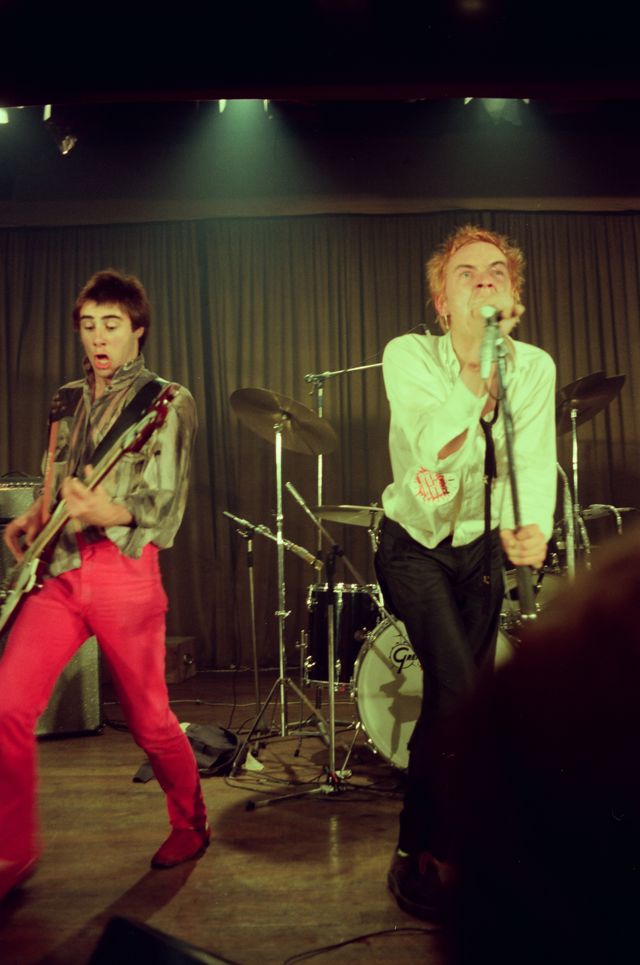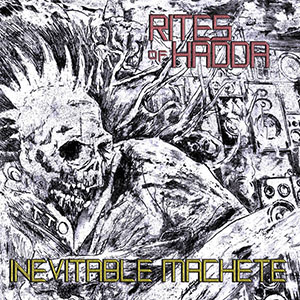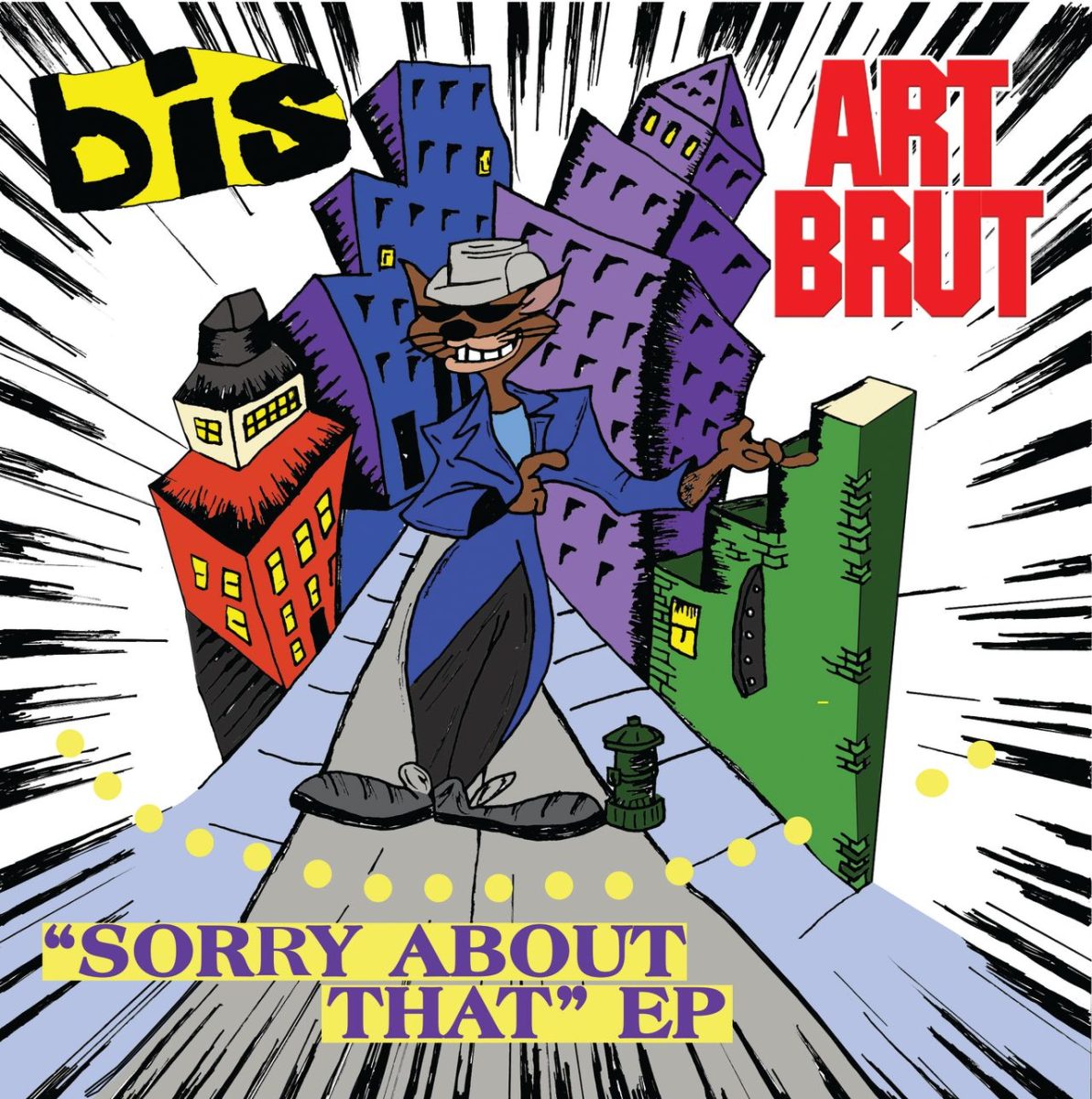Just before the premiere of I Was a Teenage Sex Pistol, I had a chance to sit down with Glen Matlock, co-founder and bassist of the Sex Pistols, while he was at home in London. We chatted about Matlock’s perspective on the early Sex Pistols years, the process of moving a memoir to screen, and the enduring influence of punk. (And, at last, I got to tell a real live Sex Pistol about my ‘90s homemade Sex Pistols t-shirt that, to my great delight, ran afoul of my school’s proscriptive and patriarchal dress code. Teenage dreams do come true.)
~
LTW: For those who aren’t up on their Sex Pistols written histories, this new documentary is based on a book you published in 1990, which made you the very first Sex Pistol to have a memoir out. What made you want to return to the late 70s when you originally wrote the book, and to those memories that, I imagine, must have been a bit difficult to revisit?
GM: A musician’s life is kind of up and down, you’ll be really busy one moment and then you’re not busy at all. My lady friend at the time, who was a bit younger than me, didn’t know too much about it [Vivienne Westwood’s punk London, Sex Pistols gigs], so she said, ‘Why don’t you write about it?’ I thought my part in the history of it had kind of been skipped over a little bit, so I thought, I’ll put that straight. And I also thought, if I write this book, I’ll never have to talk about it again. But the thing is, as soon as you write a book, people want to talk to you about why you wrote the book, and what about this bit on page 58, or on 69 there? And so off you go, you’re going on it about it all the time [laughs].

I know some people find that process of writing a memoir cathartic while others find it difficult to go back into those memories. How was it for you?
I thought it was very cathartic. At the time, there were things I hadn’t said, and being able to sit down and put them to paper… It’s a bit like a funeral. And you know, nobody looks forward to a funeral, but then you go, have some drinks after, and everybody reminisces, and everyone comes away a bit more uplifted because of the shared experience.
Were you apprehensive at all about how the others might react to seeing your perspective in print?
Well, I wrote because I had some hang ups about the whole thing but they’ve subsequently changed because we reformed with John [in the 90s], and now we’ve got Frank Carter, and we’ve done quite a few things over the years, and the band could have asked anybody in the world to be the bass player and they’ve always asked me, so I’ve felt some kind of vindication in that.
Had you been in touch with the other guys at that point, when the memoir came out, or were those relationships distant?
We really hadn’t spoken for a long time. But not long after that [in 1995], I went out to Los Angeles. I said to this guy I was staying with, ‘you know what? I haven’t seen Steve Jones in like, 17 years.’ The next day, he appeared with Steve’s number, said give him a call. In the end, I called up Steve, and Steve said, ‘I heard you was in town, come on over!’ So I went over and saw Steve, and he said, ‘let’s go and see John [Lydon],’ so then we saw John, and it was like, whoaaaa. So this is 1995, and we decide to call Paul [Cook] up. But because of the time difference [between Los Angeles and London], he was out, we left him a message. And that’s what led to the Filthy Lucre tour in 1996, so the hatchet was starting to get buried.
When you guys got back together in the ‘90s, I was a teenager who was really into punk and also really into new female artists and bands, and obviously the two things are not mutually exclusive. Anyway, I saw Poe — the musician who’d just released the album Hello — on an episode of Loveline on MTV, and she was wearing a t-shirt that said, “Mommy, what’s a Sex Pistol?” I loved it and made my own — my own bootleg Sex Pistols merch! I wore it to school, and of course, I was told I could turn the t-shirt inside out, choose another shirt from the lost and found, or call my mom to get picked up.
[laughs] Well, what’d you do?
I said I wasn’t taking the shirt off and wasn’t turning it inside out, either! Eventually my mom got involved and made me change the shirt. She was rarely on my side when it came to the fucked up school dress code. But all of this makes me think about the way that reunion brought a new generation of fans to the Sex Pistols, and how you guys are doing it again now.
Yeah, you know, we’ve been touring sporadically over the years, and particularly now, we’ve got Frank Carter singing with us who’s 15, 20 years younger than us, so we get people who are fans of his, we get people who were fans originally, became fans in the 90s, bringing their kids. We’ve never been particularly age-specific.
Anyone can be a punk, right? A rebel? There’s no age limit on that.
I’d like to feel it doesn’t matter how old you are. It’s never about that. It’s how hip you are. And if you’re coming to see us, obviously, you must be very hip [Matlock smiles mischievously].
 Naturally! Circling back to the documentary, had you considered that your early memoir would work as a film? It’s interesting since it was the first Sex Pistols memoir, but there’s now been Julien Temple’s The Filth and the Fury (2000), and Danny Boyle’s Pistol (2022), which was based on Steve’s memoir Lonely Boy: Tales from a Sex Pistol…
Naturally! Circling back to the documentary, had you considered that your early memoir would work as a film? It’s interesting since it was the first Sex Pistols memoir, but there’s now been Julien Temple’s The Filth and the Fury (2000), and Danny Boyle’s Pistol (2022), which was based on Steve’s memoir Lonely Boy: Tales from a Sex Pistol…
In the back of my mind a long while ago when the book was published, I thought it would make sense to be some kind of documentary, but I didn’t know quite what. I spoke to a few people over the years about it, but I wasn’t really pushing it, just suggesting it. Then I met this guy Nick Mead about 10 years ago, gave him a copy of the book, and he really liked it. He spoke to a bunch of different people about the film but didn’t really get a bite on it. Then Andre Relis from VMI said he’d get behind it, so we started doing it slowly, starting a few years ago.
The funny thing is, not that it really matters that much, but we started doing it all prior the new Sex Pistols, getting back together again with the new singer. And then Steve put his version out [Pistol], which was how he saw things. And John [Lydon] says there’s just one truth, but you know, when you’re in a band, everybody’s got a different opinion, a different memory of how they arrived at what you all did collectively. So there’s always several threads to any story, and this film is my take on it.
You know, it’s great to hear you say that because it’s something I’m always preaching — how problematic the idea of a “definitive history” is. There’s never such thing, right? Everyone has their own experiences, and in then trying to narrate those experiences years later, often decades, you’ve also got the foibles of memory to contend with, etc. But ultimately, there’s never just one history, never an objective way to tell a story.
Absolutely, and you know, I think for the most part we’re all quite symbiotic with that. But the funny thing is, whoever goes to work and comes up with a ‘definitive history’ of whatever they’re working on quickly seems to forget that everyone else involved also has a ‘definitive history’ of their own. So there you go, it’s never a definitive thing.
And the documentary has Steve and Paul, along with a lot of other great voices, helping to tell your story…
Lots of people bigging me up! [smiles] Billy Idol, Debbie [Harry of Blondie], Clem [Burke of Blondie], Paul and Steve, Wayne Kramer [of MC5]. You know, those were the last interviews both Clem and Wayne did [Kramer passed away in 2024, Burke in 2025].
And you were an executive producer. What was that experience like?
I guess I do that for lots of people all the time, ‘executive producer,’ whenever somebody invents something, puts something out, before they do it, they run it past me. And I’m very good at telling people exactly what’s wrong with it [laughs].
 I was fascinated that the film starts and ends in the States, beginning with a gig you did at the Troubadour in Los Angeles and closing at the new Punk Rock Museum in Las Vegas. How’d you all decide on that?
I was fascinated that the film starts and ends in the States, beginning with a gig you did at the Troubadour in Los Angeles and closing at the new Punk Rock Museum in Las Vegas. How’d you all decide on that?
It’s a global village, you know? I was over playing at the Troubadour and the guys were in town, so we thought it’d be a good thing. And in Las Vegas, it was actually one of the last things we shot. I was over there waiting to do the guided tour [which includes a section on the Sex Pistols]. That trip was funny because I was doing some touring for some of my own stuff. I had two or three years playing with Blondie, Steve had a career in the States as a DJ and playing with other people, Paul has always had his own thing going, but it all gets measured against the Sex Pistols all the time. And it ain’t gonna change now! So if that’s what people want, we all might as well go out and give it to ‘em!
Do you still enjoy playing the Sex Pistols songs?
You know, I really do. And just playing with Steve and Paul. We all learnt to play together, so when we get in a room, get on a stage, plug in and start playing, it just sounds like the Sex Pistols even if you’re having a good day or a bad day. We don’t normally have a bad day musically [laughs]. But it’s something that the three of us have got in common over anybody else in the world. When we plug in, we’re the Sex Pistols musically, and John was always the icing on the cake…
I do wish we could have a few new numbers. I’ve got ideas for songs, and the other guys probably have as well. But whether the world wants another Sex Pistols album without Johnny Rotten is another matter. I see it as a challenge to be addressed and not to be shirked from.
 Is there a possibility of a new Sex Pistols Record? Do you guys talk about it?
Is there a possibility of a new Sex Pistols Record? Do you guys talk about it?
Yeah you know, we’ve spoken about it and everyone goes yeah, we’ll give it a go, but then nothing ever happens. When we’re together, we’re rehearsing to do a tour, so just don’t have the time. Getting on a bit, crushing travel schedule, jet lag, so you know, going, ‘hey guys, I’ve got an idea for a new song,’ they all go ‘yeah, right then’ [laughs].
Any planned shows with the documentary’s premiere?
There was going to be a premiere in Hollywood, but Steve Jones fell over and broke his hand, so we’ve had to reschedule and that’s all going to be next year now. But there’s premieres planned at the Barbican, in Hackney, Dublin. But releasing films and TV is a very different way from releasing music, so I’m still trying to get my head around it. I’m not in the driving seat on that.
Any especially good Sex Pistols memories that are on your mind now that the documentary is coming out and you’ve seen the final edit?
I remember some of the funny gigs, like playing in a men’s maximum security prison, and then you know, some of the tiny art school gigs. Playing at Chelsea School of Art where there was a bit of talk about getting John Cale, who Malcolm [McLaren] knew to be our producer, and he was supposed to come down. But we forgot to put him on the guest list, so he never came in because he was too tight to spend 50 pence on a ticket!
 Speaking of art school Sex Pistols gigs, I just wrote a book on The Raincoats, which came out this past summer. Gina Birch, one of the band’s co-founders, has great memories of actually being at the first Pistols gig at Saint Martin’s!
Speaking of art school Sex Pistols gigs, I just wrote a book on The Raincoats, which came out this past summer. Gina Birch, one of the band’s co-founders, has great memories of actually being at the first Pistols gig at Saint Martin’s!
I didn’t realize she was there at that show! [smiles] I organized the show because I’d actually been at Saint Martin’s at the time. It was with a band called Bazooka Joe [John Ellis, Danny Kleinman, and Stuart Goddard who’d later become Adam Ant]. They were supposed to let us use their equipment, but John started kicking the PA system around, and so they pulled the plug on us because they was worried about their PA system, which they hadn’t finished paying for, so they were worried it was going to be repossessed. It wasn’t ‘cause they didn’t like us! So then, of course, a fight broke out.
~
UK PREMIERE!
I Was a Teenage Sex Pistol
Screening + Q&A with Glen Matlock
30th October 2025
London — Hackney Picturehouse
Presented by Doc’nRoll Festival
Follow Glen Matlock on Instagram and Doc’nRoll Films for more updates, screenings, and events around I Was a Teenage Sex Pistol.
~
Words by Audrey Golden, author of I Thought I Heard You Speak: Women At Factory Records and Shouting Out Loud: Lives of The Raincoats. You can follow Audrey on Instagram, Twitter, and Bluesky, and you can check out her personal website to learn more about her writing. Audrey is also station manager of Louder Than War Radio, where she presents the show BREAKING GLASS.
A Plea From Louder Than War
Louder Than War is run by a small but dedicated independent team, and we rely on the small amount of money we generate to keep the site running smoothly. Any money we do get is not lining the pockets of oligarchs or mad-cap billionaires dictating what our journalists are allowed to think and write, or hungry shareholders. We know times are tough, and we want to continue bringing you news on the most interesting releases, the latest gigs and anything else that tickles our fancy. We are not driven by profit, just pure enthusiasm for a scene that each and every one of us is passionate about.
To us, music and culture are eveything, without them, our very souls shrivel and die. We do not charge artists for the exposure we give them and to many, what we do is absolutely vital. Subscribing to one of our paid tiers takes just a minute, and each sign-up makes a huge impact, helping to keep the flame of independent music burning! Please click the button below to help.
John Robb – Editor in Chief






Leave a Reply